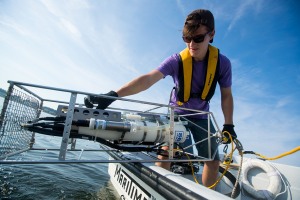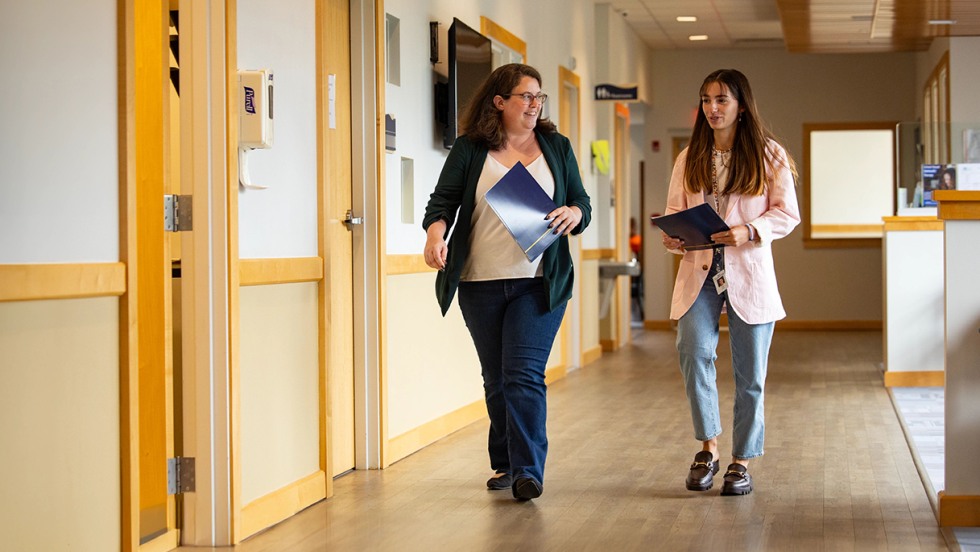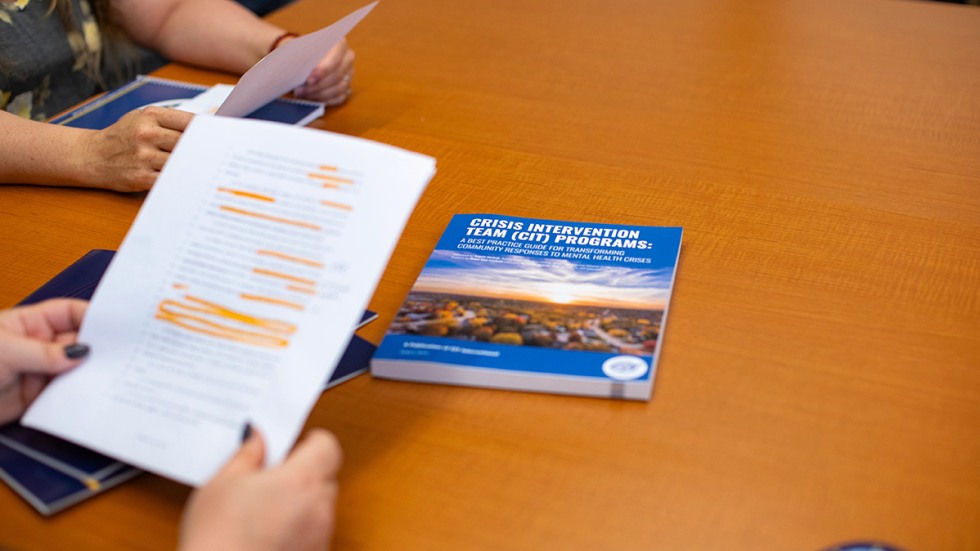PROVIDENCE, R.I. [Brown University] — Liz Gledhill loves the work she does at Thundermist Health Center, where she has served since 2019 as the statewide training coordinator for the center’s crisis intervention team based in Wakefield, Rhode Island.
The team creates connections between different local and state agencies, including law enforcement and hospital emergency services, and individuals with mental illness and their families, with an overarching goal to improve crisis response for people with mental health disorders.
Since enrolling in Brown University’s master of public health program, Gledhill has been looking at her role from multiple perspectives, always with an eye towards health equity.
One thing she noticed is that first responders who have successfully de-escalated a mental health crisis with an individual are often stymied by basic health questions, such as, “Where can I get something to eat?” or “How can I find a doctor?” When Gledhill talks to police officers during crisis intervention trainings, they report not knowing what humanitarian aid resources to offer people during mental health emergencies.
But as a public health professional, Gledhill knows what’s available — and she’s devising ways to get that information into the hands of those who need it.
“So many of our patients are negatively impacted by their interaction with police,” Gledhill said. “We have an obligation to ensure our patients and our communities are safe and cared for. Crisis Intervention Training directly addresses our patients’ interactions with police by providing first responders with the tools they need to be empathetic and safe community partners whenever a person experiences a mental health crisis.”
Students enrolled in the MPH program at the Brown University School of Public Health are required to complete an applied practice experience in which they translate what they’ve learned in class to a practical work or internship experience. The program provides them with resources to connect with learning experiences, but Gledhill already had a proposal of her own.
Summer project harnesses technology to promote public health
For her project, Gledhill is spending the summer collecting resources for first responders that can be accessed via a QR code. She’ll hand out business cards with the code during crisis intervention trainings, and when scanned with a phone, it will bring users to a website that she’ll keep up to date with county-specific health resources.
“First responders will have all the information in one place and can share it in real time, in person,” Gledhill said. “For example, if an officer in South Kingstown is assisting someone who says they need help with medication management, the officer can scan the code, look up Washington County and find a current list of mental health providers. If the person in crisis needs food, the officer can look up the closest food pantry and send the person there.”
Gledhill’s solution is a more technologically advanced version of the resource list she has traditionally printed out to hand to officers, plus it’s more current and therefore reliable, she said.
“This could be really beneficial for the officers and the people they’re assisting,” she said.


